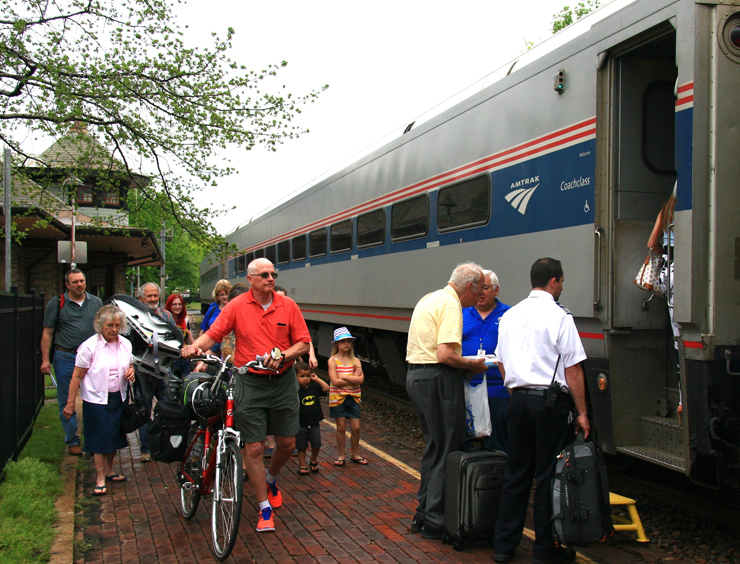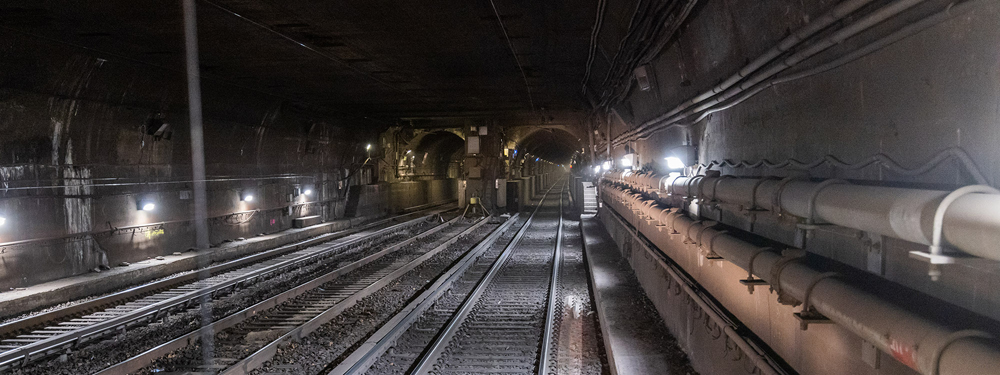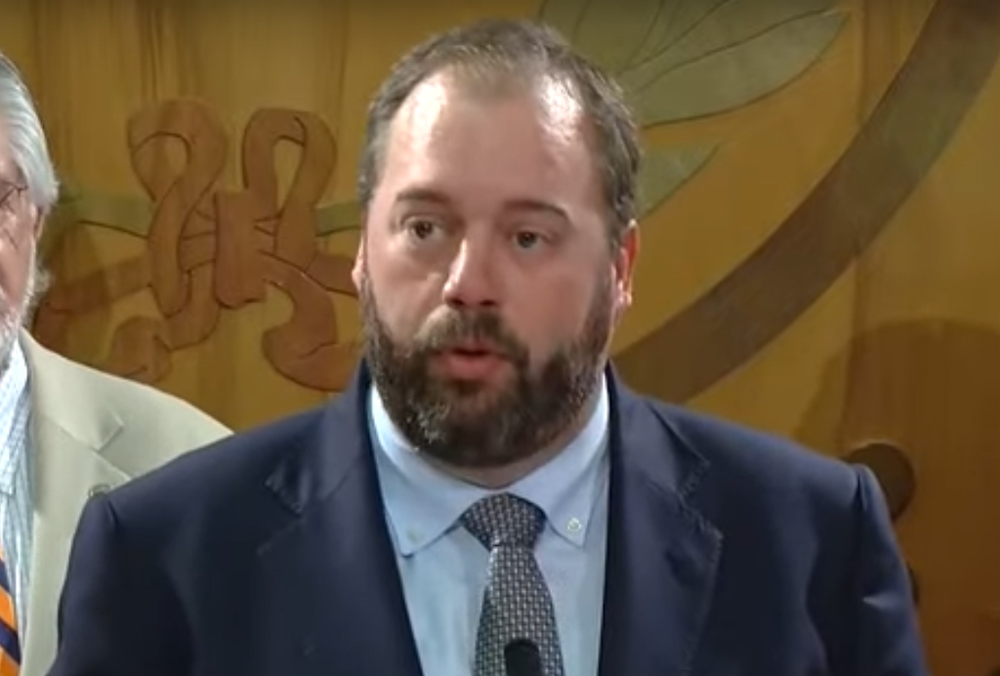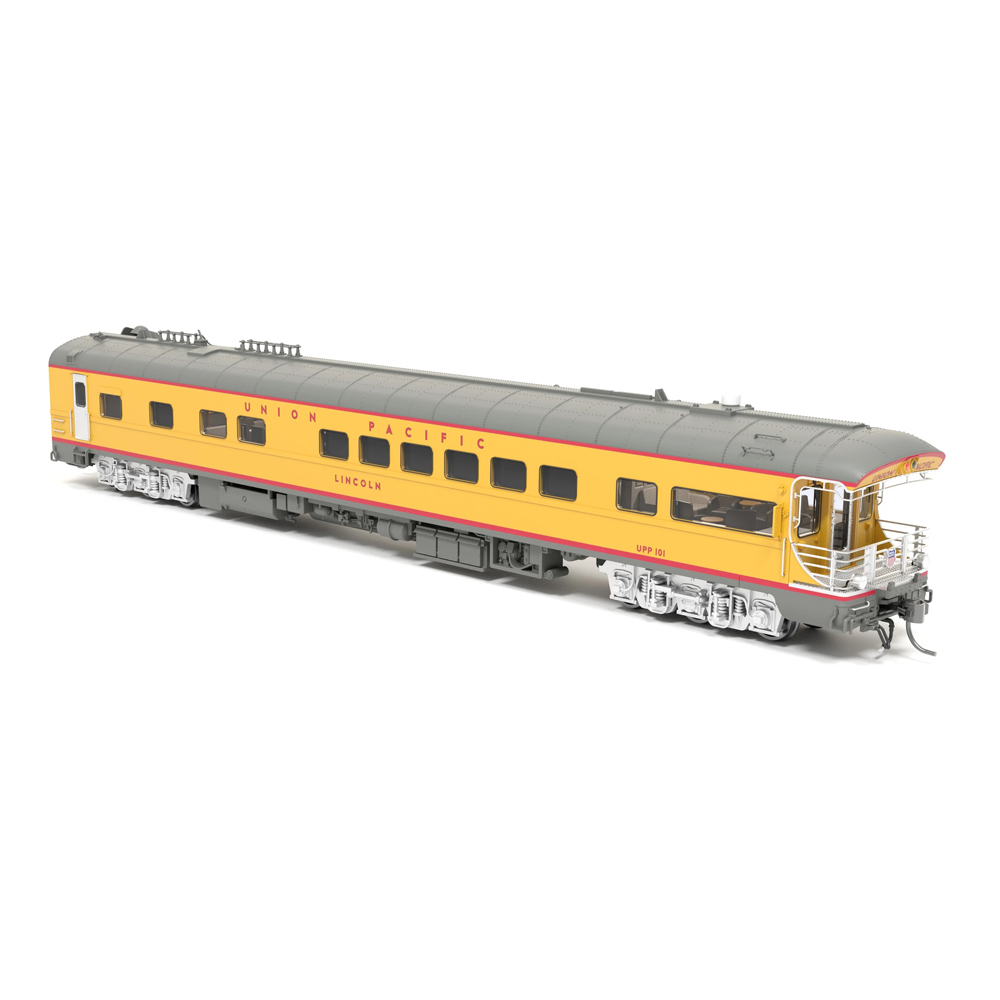JEFFERSON CITY, Mo. — The state of Missouri owes Amtrak more than $6 million for operation of the state-supported Missouri River Runner, a debt which could eventually put the service in jeopardy, a state official says.
Missouri Department of Transportation Director Patrick McKenna told the budget committee of the state house of representatives last Thursday that the debt, which has accumulated over the last decade, was an “embarrassment,” the Jefferson City News-Tribune reports.
The $6.5 million the state owes reflects a gap between the legislative appropriation for the service — $9.1 million per year since 2017 — and an Amtrak contract that was $10.6 million in 2017 and will rise to $12 million next year, the newspaper reports. The state DOT is asking the legislature for an additional $12.2 million on top of the regular funding allocation to pay off the debt and cover the funding gap in 2020 and 2021.
McKenna said Amtrak has been patient in working with Missouri DOT and has not threatened to end service, but he told the newspaper in an interview that he believed that could happen at some point.
During McKenna’s appearance, Rep. Dirk Deaton (R-Noel, Mo.) said there should be a serious discussion whether the state should continue to fund the service. Defunding would carry its own price tag; the legislature accepted $50 million in federal funding for station improvements along the train’s route in 2014, with the provision that the line would operate for 20 years. If the service is shut down, McKenna said, the state would have to pay back $36 million, the prorated portion of those funds.
The Missouri River Runner, between St. Louis and Kansas City, makes two round trips daily. It carried 154,417 riders in Amtrak’s fiscal year ending September 2019 — a drop of 8.9% from fiscal 2018. The train was shut down for a lengthy period in May and June 2019 as Union Pacific rerouted freight service onto the line because of flooding elsewhere in the Midwest.















MoPac also ran the “Missouri River Eagle” over this route, their first streamliner, originally called simply “The Eagle” I think. Originally operated St. Louis-Omaha by way of K.C., then cut back to St. Louis-K.C.
As a reminder, this was once the proud route of Missouri Pacific’s St Louis – Denver streamliner, ‘The Colorado Eagle’.
Mr. Dickey same could be said of the NEC plenty of other options. As far as bus service in place of this train what few bus options that do remain do not want to serve smaller communities if it does it is usually a gas station on the interstate. Greyhound is for sale again so who know what the end result will be with that they may go the way of Megabus direct point to point trips no stops in between.
The rail ticket costs between $40.00 and $60.00. A bus ticket for the same route costs $27.00. In addition we, the taxpayers, are subsidizing that rail ticket by roughly $80.00 per passenger. The bus is faster and has more frequent trips.
What does the rail service provide that the bus cannot? The bus can go to the same locations as the rail. If there is demand, there are high end buses that are just as spacious and comfortable as rail, at a higher ticket price of course.
So tell me again why we, the taxpayers, should subsidize this rail service?
Travelled on the line from Jefferson City in November. Started well but after 20 miles it was slow and with a couple of stops. I was told by an Amtrak employee we were behind a UP freight that was too long for the passing sidings the State payed for. We passed the freight about thirty miles from Kansas City arriving 20 minutes after the train was scheduled to head back. The state surely must look into this and get a big refund from UP
Interesting because MoDOT just allocated another $7 million last week into the road fund to cover a possible bid shortfall for the I-49 Bella Vista Bypass which goes out to bid this week. I know a lot of people who hope that $ doesn’t get clawed back.
This is the downside of state supported Amtrak services. As term-limited Missouri legislators come and go priorities can and do change abruptly. As a resident of Jefferson City I see this first hand. Plus, tax revenue collections can change from year to year. Sometimes by a lot. There is no department in Missouri that isn’t feeling the pinch. I wondered to myself about the wisdom of accepting the federal funds for stations. Personally, I think that should be up to the area communities served by those stations. It’s time for everyone to talk – Amtrak, the feds, and the local community leaders.